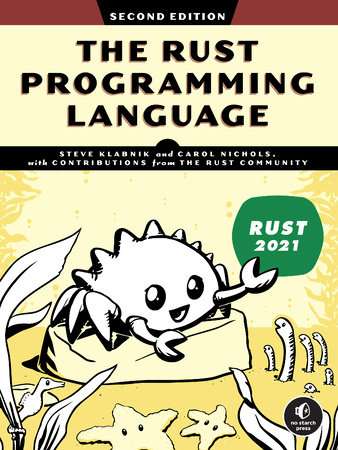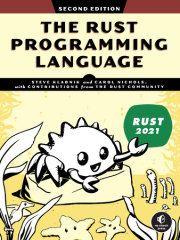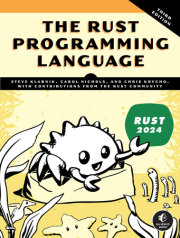Foreword
Preface
Acknowledgments
Introduction
Chapter 1: Getting Started
Chapter 2: Programming a Guessing Game
Chapter 3: Common Programming Concepts
Chapter 4: Understanding Ownership
Chapter 5: Using Structs to Structure Related Data
Chapter 6: Enums and Pattern Matching
Chapter 7: Managing Growing Projects with Packages, Crates, and Modules
Chapter 8: Common Collections
Chapter 9: Error Handling
Chapter 10: Generic Types, Traits, and Lifetimes
Chapter 11: Writing Automated Tests
Chapter 12: An I/O Project: Building a Command Line Program
Chapter 13: Functional Language Features: Iterators and Closures
Chapter 14: More About Cargo and Crates.io
Chapter 15: Smart Pointers
Chapter 16: Fearless Concurrency
Chapter 17: Object-Oriented Programming Features
Chapter 18: Patterns and Matching
Chapter 19: Advanced Features
Chapter 20: Final Project: Building a Multithreaded Web Server
Appendix A: Keywords
Appendix B: Operators and Symbols
Appendix C: Derivable Traits
Appendix D: Useful Development Tools
Appendix E: Editions
Index











